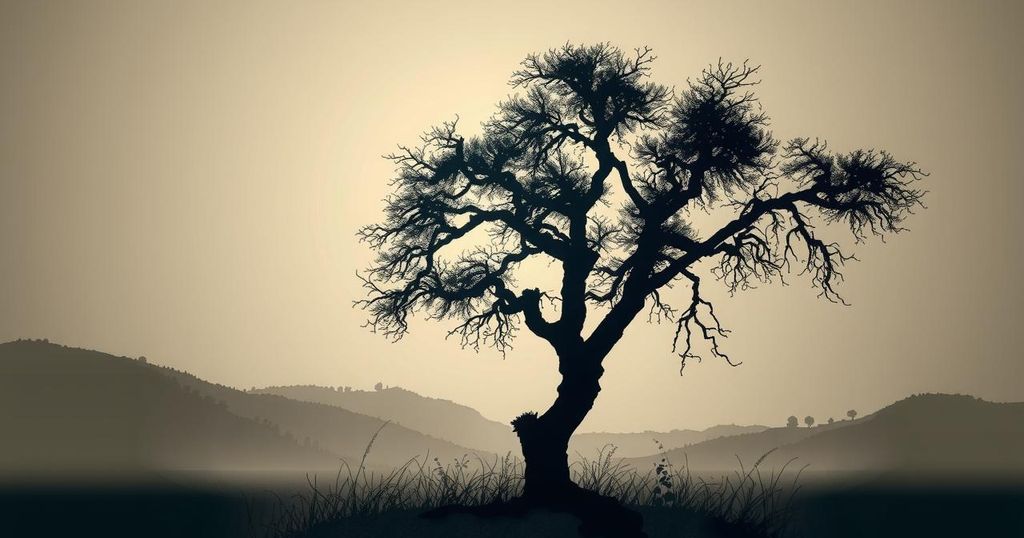Abductions in Kenya Raise Alarming Echoes of Authoritarian Past
Kenya is witnessing a troubling rise in abductions of government critics, with over 80 reported disappearances in the past six months. Public outrage has prompted legal action against top security officials. Notable cases like Billy Mwangi’s abduction highlight deep-seated fears of a return to past abuses. Despite government denials and ongoing investigations, accountability for these incidents remains elusive, leaving families in distress as they await answers regarding their missing relatives.
The alarming disappearance of over 80 critics of the Kenyan government has ignited widespread public outrage. Amid the turmoil, a judge has issued a warning to top security officials regarding their repeated failure to appear in court related to these alleged abductions. The National Commission on Human Rights in Kenya has highlighted the disappearances since nationwide protests against tax increases erupted in June, with at least 24 individuals remaining unaccounted for.
While the government and police have denied involvement in these troubling incidents, the historical context of state-sponsored abductions casts a shadow of fear over many Kenyans, reminding them of a perilous past. Recently, Police Inspector General Douglas Kanja and Directorate of Criminal Investigations Director Mohamed Amin were summoned to court to address the cases of seven social media influencers who went missing in December.
Among those affected is Billy Mwangi, a 24-year-old college student who vanished while at a barbershop in Embu. His abduction by masked men in a vehicle led to a desperate search by family and friends, leaving them in anguish. Upon his release, Billy exhibited signs of trauma, described by his father as being in shock, underscoring the emotional toll of such experiences on victims and their families.
Jamil and Aslam Longton are also survivors of abduction, having endured 32 days in captivity after being targeted due to their political activism. They grappled with threats of death if they disclosed their experiences. Jamil emphasized the legality of arrest procedures, highlighting their protracted captivity without legal representation, thus classifying their experience as abduction rather than arrest.
The government has thus far denied allegations of its involvement in these unlawful detentions, suggesting alternative explanations for the organized crime that could be politically motivated. Notably, government spokesman Isaac Mwaura pointed out that the regime has not sanctioned any forms of abduction, as per the principles of governance.
President William Ruto has publicly committed to halting these actions, responding to both domestic outcry and international concern over the resurgence of disappearances reminiscent of Kenya’s darker days. Veteran activist Gitobu Imanyara underlined the threat of returning to oppressive practices, although he believes the current climate allows for a stronger democratic pushback against such abuses.
Reports of disappearances have diminished recently, yet despite ongoing police investigations, accountability remains elusive. Advocacy groups have reached out to the Attorney General to escalate the referral of abduction cases to the International Criminal Court, seeking justice for the victims. Family members of those still missing, like Stacey Mutua, continue to live in despair as they hold out hope for the return of their loved ones.
The situation in Kenya reflects a troubling resurgence of fears surrounding state-sponsored abductions, drawing parallels to the authoritarian rule experienced during the late 20th century. As citizens express their dissent against government actions, particularly concerning tax policies, the abductions of critics have prompted significant legal challenges and public protests. Observers note that increased awareness and the proliferation of social media may play a crucial role in documenting these violations and mobilizing public resistance.
The reported abductions of government critics in Kenya have understandably prompted fears of a return to a more repressive era in the nation’s history. While government officials maintain that these actions are not state-sponsored, numerous cases point toward a troubling pattern reminiscent of past abuses. The effort by advocacy groups to hold the government accountable alongside the emergent public discourse showcases a critical juncture in Kenya’s approach to governance and human rights enforcement.
Original Source: www.bbc.com




Post Comment